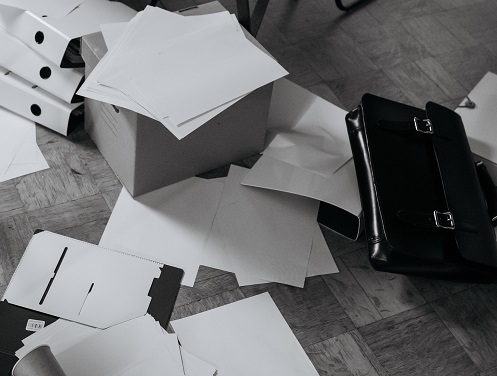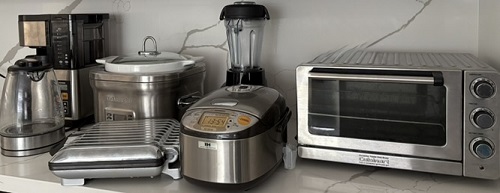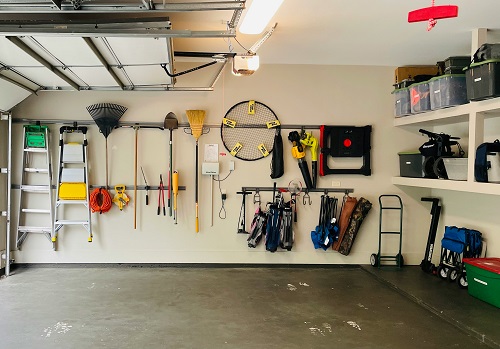What To Do When You Own Too Much Stuff
By Pamela Wong
Pamela is a Trained Professional Organizer based in Oakville, Ontario and is the owner of Zen N Organized. She helps homeowners and small business owners transform their homes and home offices into organized spaces. She has a practical, non-judgemental approach to organizing. Her objective is to create functional and harmonious spaces for her clients.

In the last blogpost, Do You Have Too Much Stuff?, I talked about signs that you may have too much stuff. In this blogpost, I want to discuss why too much stuff is bad for your health and what you can do about it.
Clutter Is Bad For Your Health and It Costs You Time and Money Too!
Clutter not only affects the physical space, but it can also have effects on your health and cost you both time and money.
Dust gets accumulated onto and around the clutter, making your home and office more difficult to clean and keep tidy. Dust and dirt triggers allergies and breathing issues. Clutter takes longer to clean and time is money.
Clutter may also create safety concerns such as tripping hazard or items falling causing injuries.
You may get overstimulated by the visual clutter, which in turn causes unsettling emotions, anxiety and/or stress. You may find it difficult to focus when you are surrounded by clutter and feel discontentment towards life. All of this can pile up quickly and can cause changes in your diet and sleep schedules.
Clutter may also change how you are viewed by your family and friends. The negative emotion that is tied to being surrounded by clutter can eat away at your self-esteem, causing mood fluctuations, anger and fatigue. It could also push you to not want to invite people over at all leading to loneliness and isolation.
Steps Towards A Clearer Tomorrow
Decluttering can be a daunting task, especially when you already feel stressed by just looking at the piles. Here are some examples of common obstacles and how to resolve them:
“I have to keep them just in case.”
How about looking at it from a different angle? Ask yourself, “What would be the worst thing that can happen if you need it in the future and you don’t have it?” Would it be the end of the world? Would you be able to borrow the item from a friend? Would you be able to repurchase it? Also, what is the likelihood that you will need this item in the future in the first place?
“I spent a lot of money on these.”
You might have spent a lot of money to purchase it, but what good does it do if you are no longer using this item? How is it serving you when it is stored in a box?
Sentimental items
Let’s say that you are holding onto your grandmother’s china set. Instead of leaving it packaged up in a box and stored in your basement, why not find a couple of pieces that mean that most to you and display them. Wouldn’t that be a better way to honour your grandmother?
How about your children’s artwork? Instead of leaving them in a drawer or a bin, why not let your children choose the ones that are the most meaningful to them and display them around your house?
“I am not sure how long I have to keep this.”
This is probably the easiest obstacle to overcome. If you are not sure if Google is providing the correct answer, why not consult your accountant and/or other professionals to find out what exactly you need to keep and how long you need to keep them?
“I’ve moved a few times and I don’t know what’s in these boxes anymore.”
If you haven’t opened the boxes in years, what is the likelihood that you will need something from there? If you still need to review the contents, then spend some time and open one box at a time. Choose only items that you absolutely need and want and discard/donate the rest.
“I am discouraged by the amount of clutter.”
If you have family and friends who are able and willing, then please ask them for a helping hand through the process. Otherwise, hire professional services such as an organizing consultant who would have experience in working with similar situations.
The key to simplifying life is “de-owning” your possessions, which will allow you to live a happier and more satisfied life. When you have less stuff, you will spend less time to clean. It will be easier for you to find what you need to find and have more time to do what you’d rather be doing.



